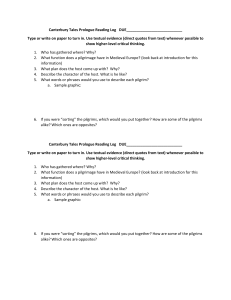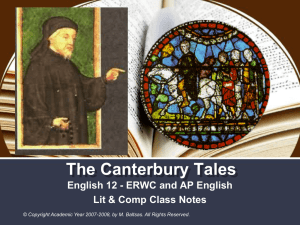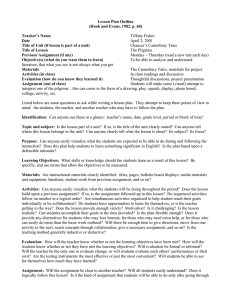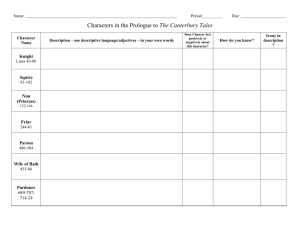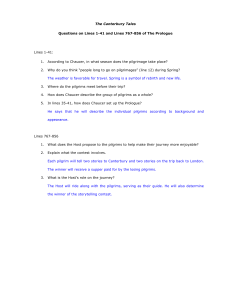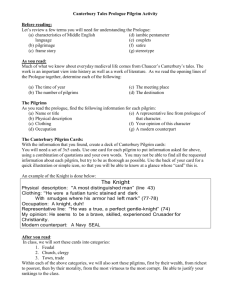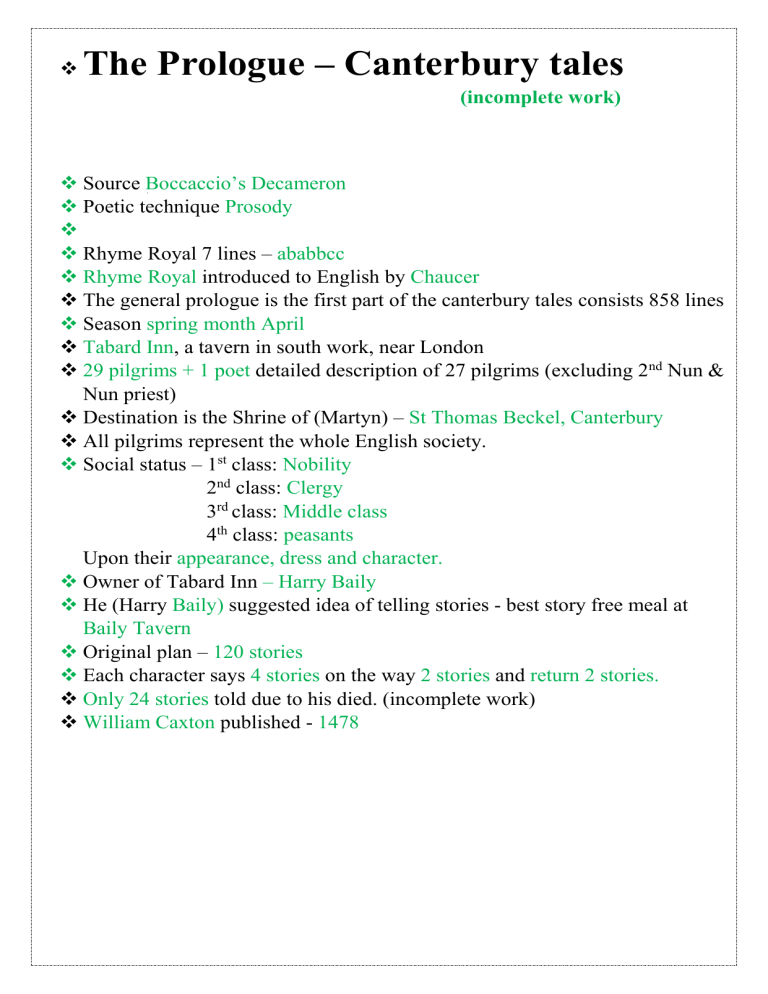
The Prologue – Canterbury tales (incomplete work) Source Boccaccio’s Decameron Poetic technique Prosody Rhyme Royal 7 lines – ababbcc Rhyme Royal introduced to English by Chaucer The general prologue is the first part of the canterbury tales consists 858 lines Season spring month April Tabard Inn, a tavern in south work, near London 29 pilgrims + 1 poet detailed description of 27 pilgrims (excluding 2nd Nun & Nun priest) Destination is the Shrine of (Martyn) – St Thomas Beckel, Canterbury All pilgrims represent the whole English society. Social status – 1st class: Nobility 2nd class: Clergy 3rd class: Middle class 4th class: peasants Upon their appearance, dress and character. Owner of Tabard Inn – Harry Baily He (Harry Baily) suggested idea of telling stories - best story free meal at Baily Tavern Original plan – 120 stories Each character says 4 stories on the way 2 stories and return 2 stories. Only 24 stories told due to his died. (incomplete work) William Caxton published - 1478 Characters 1. Knight The Knight is first to be described in the General Prologue because he is the highest on the social scale, being closest to belonging to the highest estate, the aristocracy. The Knight's nobility derives from the courtly and Christian values he has sworn to uphold: noblest of the pilgrims fulfil the principles of a Medieval English knight Lover, disguised chivalrous man, truth, honor, freedom, courtesyembodying military prowess, loyalty, generosity, and good manners 15 deadly battles The pentangle represents the five virtues of knights: friendship, generosity, chastity, courtesy, and piety. Social Status: Ruling class: highest among the pilgrims Dress: “he possessed fine horses but was not gaily dressed”wore a dark, Fustian tunic (coarse cloth) that had armor stains
